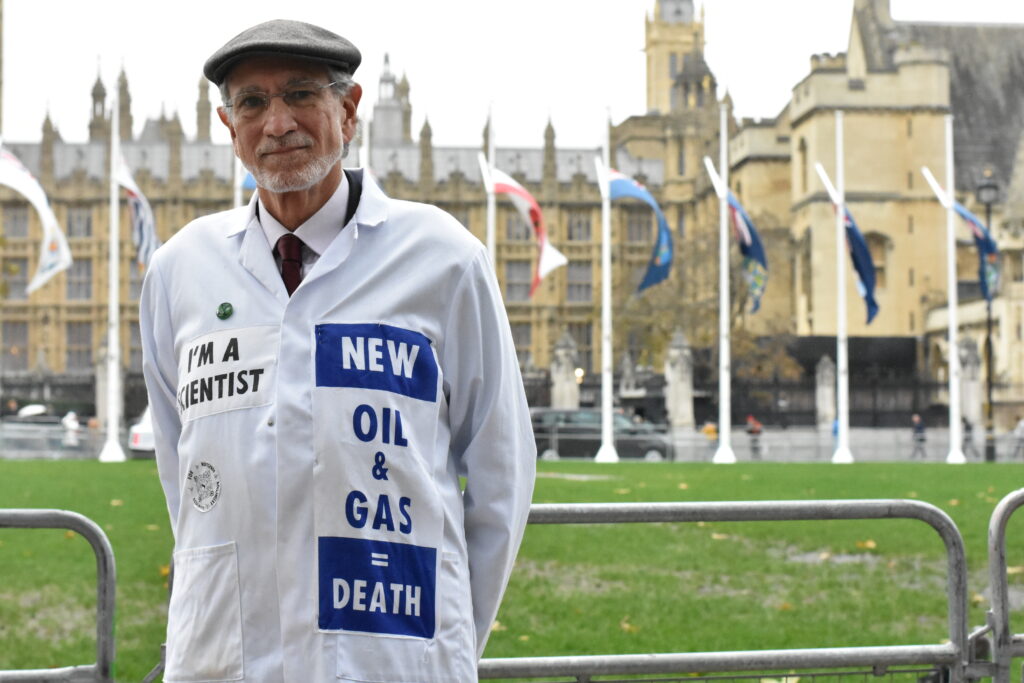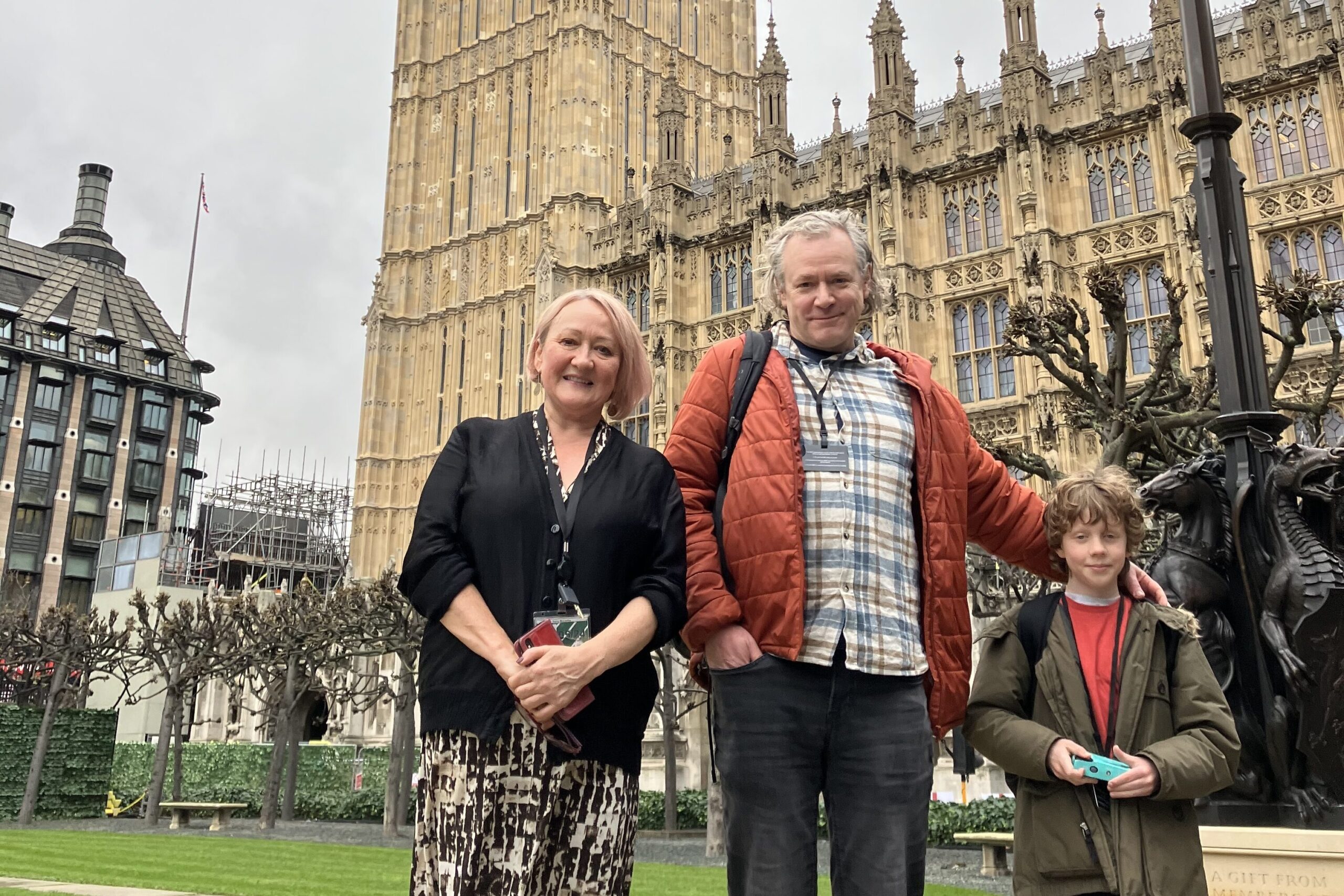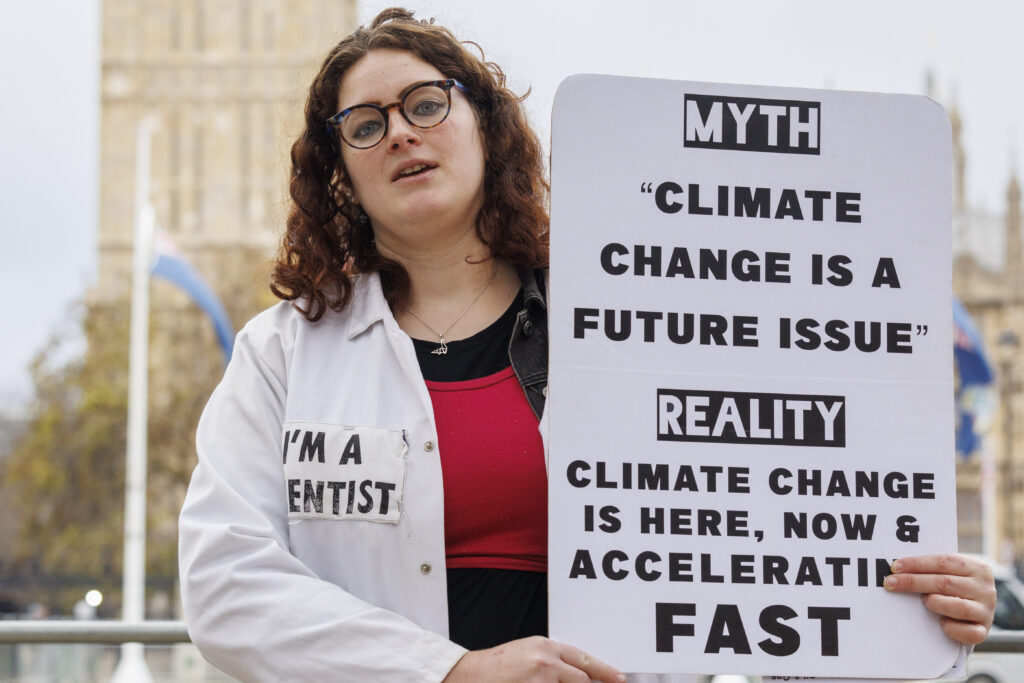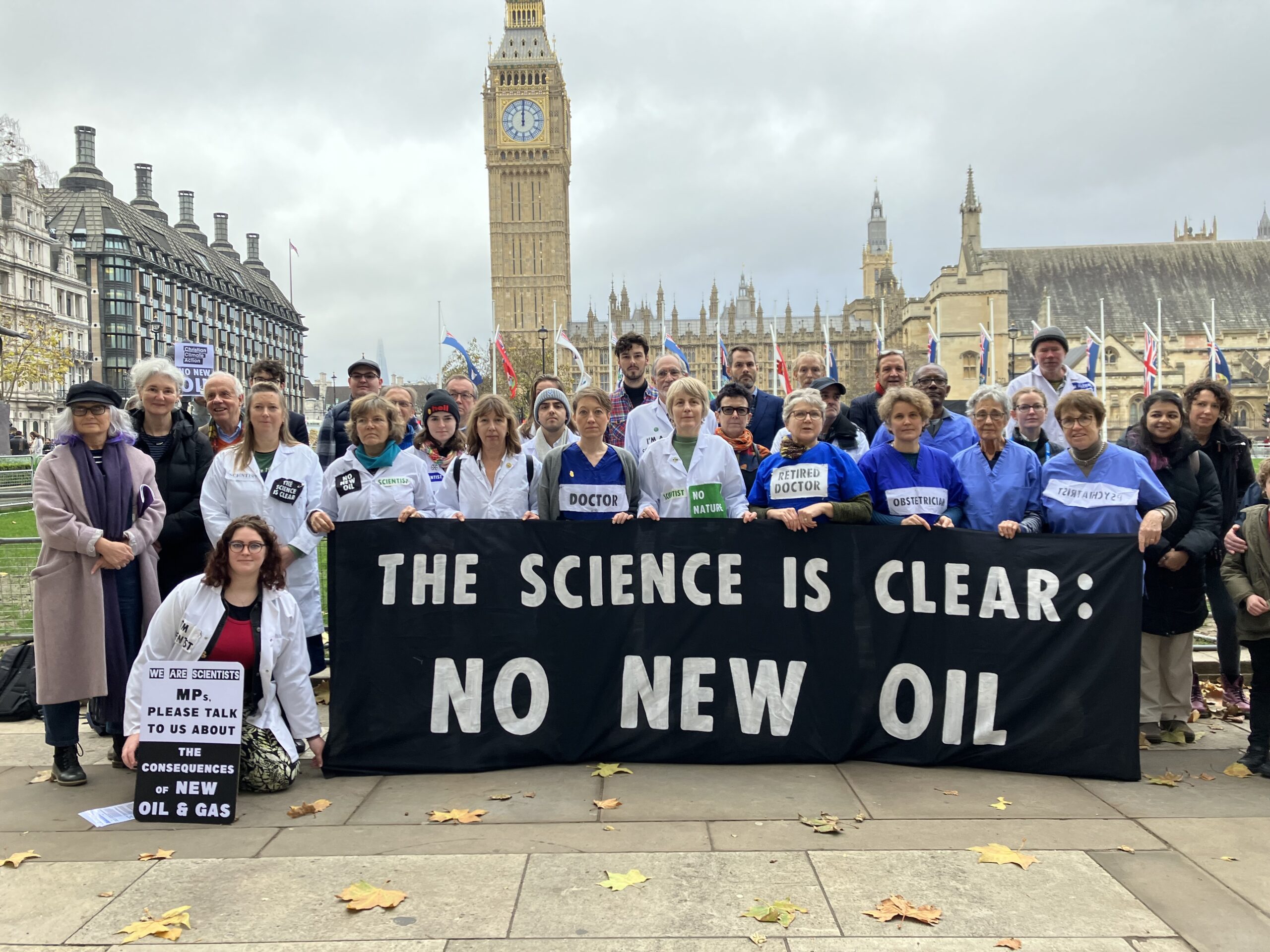This week scientists campaigned MPs at Westminster to end new oil and gas drilling. The question is – will their MPs listen?
On normal days, scientists are doing science where they normally do it – in a lab. But this week, a strong-minded coalition of them did something unusual: they left their algae specimens, ice experiments, and urban conservation projects behind to travel to the ornate halls of Westminster.
Their demands were simple: to formally request that their local MPs walk out of their offices, meet them in the ancient hallways of Parliament, and listen to them argue for an end to new oil and gas drilling in the UK.
The process is called “green carding,” because constituents fill out their requests on small green cards at the desk of Westminster’s vaulted Central Lobby.
On Tuesday, the group, which also included doctors and mental health professionals, came from as far afield as York, Cambridge, and Wales. They secured meetings with 12 MPs or their staff, including Conservative, Labour, and SNP party representatives.
Dr Abi Perrin, a 34-year-old algae microbiologist at York University who organised the action, explained: “I see it as my responsibility as someone who has the privilege to be able to study the world around me to also act on those findings.”
The International Energy Agency stated all new oil and gas field exploration must stop if humanity wants to limit global warming to 1.5C.
Last September, Rishi Sunak’s government approved a licence for the development of Rosebank, the UK’s largest untapped North Sea oilfield, which is projected to release as much carbon dioxide as 56 coal plants in a year and to produce 8% of the UK’s oil from 2026 to 2030.

Labour Leader Keir Starmer
One of the scientists, 70-year-old ecologist Dr Jeff Waage, of University of London, was so determined to speak about stopping the Rosebank oilfield to his local MP, Labour Leader Sir Keir Starmer, that he waited four and a half hours on a wooden bench with no response.
Last Friday, Sir Keir Starmer was at a gas terminal in Aberdeenshire, discussing the future of UK oil. Speaking on The News Agents podcast from Scotland, he said: “Where there are existing fields, existing licences, we’re not intending to interfere with that in any way.”
Dr Waage, a former government advisor, spent most of his career avoiding political advocacy as an activist, something he now regrets. “I now look back at that as an abandonment of responsibility. My grandchildren will live to see the next century.”
His message for Sir Keir is simple: “Even assuming that Keir knows what the science is, the message I could give to him is that the evidence is being ignored in policy making. Why are you allowing Rosebank to go ahead if you become the next government?”
Even though Dr Waage didn’t see Sir Keir that day, he wasn’t deterred by the Labour Leader failing to show, explaining, “It energised me to keep pushing. You build up a relationship over time through your MP. Now I’ve got one card up on this.”

The Shadow Minister for Climate Change and Net Zero Kerry McCarthy, and her take on fossil fuels
Environmental social scientist Dr Stuart Capstick, 48, of Cardiff University, took his eight-year-old son, Isaac, to meet his Bristol East MP, Shadow Minister for Climate Change and Net Zero Kerry McCarthy, for an hour-long discussion.
Over tea and hot chocolate in Parliament’s ornate Pugin Room, Dr Capstick challenged Ms McCarthy. “I’d love to hear there is some openness in the Labour Party of rethinking issues like Rosebank,” he asked.
Ms McCarthy explained they are not going to put an end to pre-existing licences at Rosebank, but they will oppose any new applications. She went on to say, “We will have to compensate in other areas. Once Rosebank comes on one side of the balance sheet, the question is what are you going to do to counteract that?”
She went on to suggest solutions such as carbon capture, electric vehicles, and solar and offshore wind power.
Dr Capstick pushed back asking, “If there is a balancing act needed against Rosebank, where is the balance found, when you’re building airports?”
After the 60 minute meeting came to a close, Dr Capstick expressed his frustration at the lack of progress. “It’s very easy to feel disheartened,” he said.
However, he still sees his conversation with Ms McCarthy as an opportunity. “You never know, she might be sat in a meeting with Keir Starmer and Ed Miliband in a few weeks, and this issue comes up, and she says ‘oh I’ve actually had one of my constituents on at me about this.’ You never know what’s going on behind the scenes.”

Is there a climate for scientist activism?
In the last few years, there has been a massive surge in scientists becoming activists around the world, resulting in several being fired and arrested.
However, not all scientists agree they should take political action about the climate crisis. In the past, some have expressed concerns that acting politically would damage their reputation, but in the last 10 years opinions have begun to change. Recent research has found most people in the US and Germany now trust and support scientists who speak out politically about climate change, and scientists are still among the most trusted members of society.
Dr John Besley, an expert on public opinions around science at Michigan State University, still urges caution. He says, “Scientists aren’t inherently hurting the scientific community when they protest or advocate as long as they do so in a respectful way. The danger is alienating people.”
Open University astrochemistry PhD student Zac Amato, 25, believes political advocacy is a necessity. He explains, “We are the scientists that you trust to save your lives or to make all these things for you. Please trust us again that we need to do something about the climate crisis now, or it’s all going to go completely wrong.
“As scientists, it is now not just our responsibility to do the work, we have to bring that work to the seat of power.”



